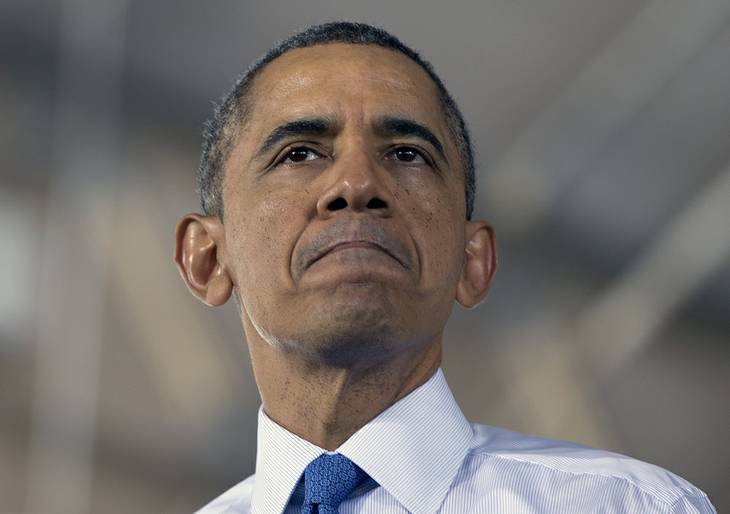Americans remain dissatisfied with the state of the U.S. economy — not a surprise considering that growth barely registered during the first three months of this year. But they also cut President Barack Obama considerable slack when judging his economic record.
The latest Wall Street Journal/NBC News poll asked Americans whether current economic conditions are something Obama "has inherited" or "a situation his policies are mostly responsible for." Nearly half of those surveyed, 47 percent, said Obama had inherited the situation, compared with 39 percent who blamed his policies. An additional 12 percent volunteered "some of both" as their response.
More than five years into the president's tenure in office, the share saying that he has inherited the nation's economic woes has declined significantly. As recently as June 2011, almost two-thirds of Americans said he had mostly inherited the economy he was dealing with.
But the continued willingness of a majority of Americans to say that Obama's predecessors at least share blame for the poor economy almost certainly has helped temper how the country views his economic record.
That view isn't rosy, but neither is it politically fatal. Asked if they approve or disapprove of the job Obama is doing handling the economy, 42 percent say they approve and 54 percent disapprove. No incumbent would celebrate such ratings, but they're virtually identical to the ones Obama received on the economy in August 2012, just a couple of months before winning re-election.
Moreover, while they don't necessarily approve of his job performance, a majority of Americans, 58 percent, believe the economy has improved during Obama's presidency, the poll showed. And 41 percent say they give Obama "some credit" for that improvement.
That's a much warmer verdict than his most recent Democratic predecessor received. In January 1996, when the same poll asked that question about Bill Clinton, slightly more than half of Americans said they believed the economy had improved during his tenure, and only 28 percent gave him even "some credit."
These days, Americans look back fondly on the Clinton-era economy, but that positive sentiment stems largely from his final few years in office. Obama can still hope that growth will pick up in the final part of his tenure.
Most Americans don't expect to see that happen. Just about half say they expect economic conditions a year from now to be "about the same" as they are now. The rest divide equally between those who expect things to get better and those who look for worsening.
Slow growth forms part of the background for those opinions. But another part stems from the feeling that the country's economic and political systems don't work well for the average American.
Asked if they agreed or disagreed with the statement that "The economic and political systems in the country are stacked against people like me," 55 percent agreed and 39 percent disagreed.
That sentiment has grown notably in recent years. Just four years ago, despite the deep recession, Americans split evenly on the question. Back in 2002, the percentages were roughly the reverse of what they are now.
